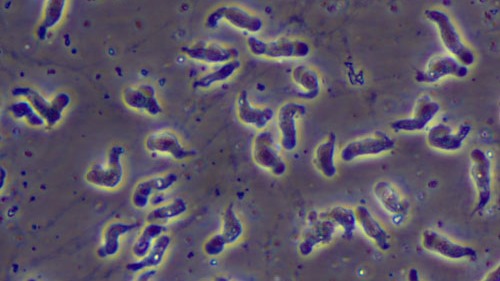Infection
Rare brain-eating amoeba case negative in Arizona
PHOENIX — Health officials said a suspected case of a rare brain-eating amoeba in Arizona turned out to be negative for the infection.
Specimens of the suspected case of Naegleria Fowleri were sent to the Centers for Disease Control and Prevention for testing and determined to not be positive, Eugene Livar, assistant director of public health preparedness for the Arizona Department of Health Services, told KTAR News 92.3 FM on Wednesday.
The suspected case occurred in Mohave County.
Naegleria Fowleri infections typically occur when people go swimming, diving or put their heads under fresh water, such as lakes or rivers.
The infection cannot be spread between people.
How rare is Naegleria Fowleri?
Domestically, no more than five cases were diagnosed annually from 2013 to 2022, according to the CDC. A total of 29 infections were reported during that time.
There have been Arizona cases in the past.
Last year, a Nevada resident was infected in Kingman Wash on the Arizona side of Lake Mead, according to Livar.
In 2007, a case happened at Lake Havasu.
An infection destroys brain tissue, which causes swelling and death. About 97% of people infected with Naegleria Fowleri have died from it in the past 60 years, according to the CDC.
Editor’s note: This is an updated version of a story that was originally published Oct. 24, 2023.
Follow @DannyShapiro13

